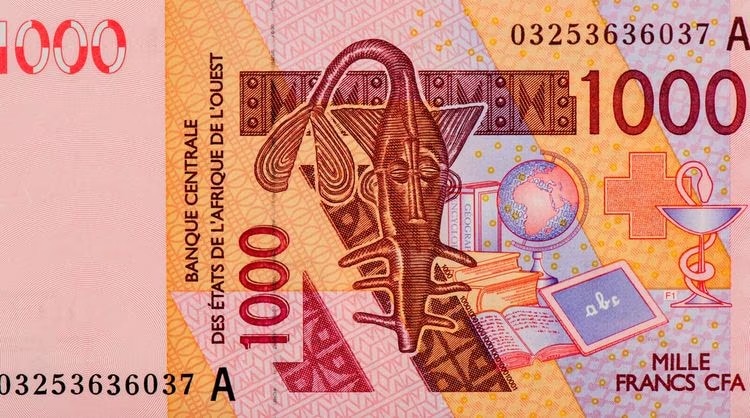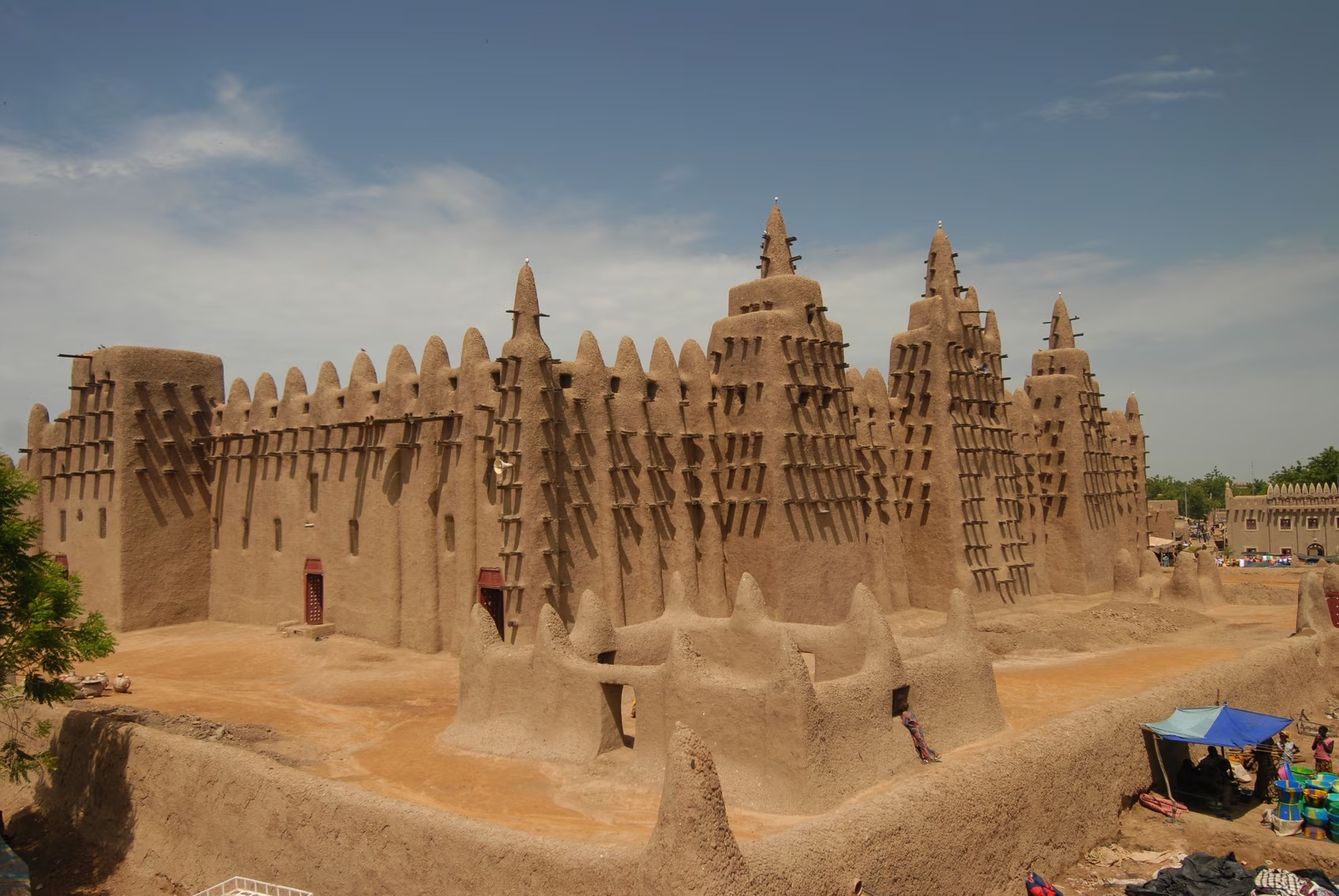Mali Travel Tips and Information

Origin of Image source: istockphoto.com
Official Name
Republic of Mali
Capital
Bamako
Population
Country Code
15.3 million
ML
Country Code (international calls)
+223
The flight time to Mali is approximately ---- hours. Check the climate, currency, religion, manners, other information of Mali below. Wishing you pleasant travels to Mali.
Mali is a landlocked country in West Africa bordered by Algeria to the northeast, Niger to the east, Burkina, Faso, and Côte D'Ivoire to the south, Guinea to the southwest, and Senegal and Mauritania to the west.
Local Climate / Weather
Mali experiences a hot, dry desert climate, with distinct seasons. The country is predominantly covered by the Sahara Desert in the north, while the southern regions have a semi-arid climate. The climate can be broken down into two main seasons: ・Dry Season (November to May): This is the cooler season in Mali, with temperatures ranging from 25°C to 30°C (77°F to 86°F) in the south, though it can still be very hot in the north, where temperatures can soar above 40°C (104°F). The dry season is characterized by little to no rainfall and is the most popular time for tourists to visit, as the weather is more comfortable for outdoor activities. ・Rainy Season (June to October): The rainy season in Mali brings heavy but brief rainfall, particularly in the southern regions. Temperatures during this time are high, often reaching 35°C (95°F), but the rain helps to cool the atmosphere. Humidity levels increase, which may make travel less comfortable, especially in the north.
Currency & Tipping
Currency
The official currency of Mali is the West African CFA franc (XOF), which is used by several countries in West Africa. The currency is subdivided into 100 centimes, with coins available in denominations of 1, 5, 10, 25, and 50 centimes, and banknotes in 500, 1,000, 2,000, 5,000, and 10,000 CFA francs.
Tipping
Tipping is appreciated in Mali, though it is not mandatory. A tip of around 5-10% in restaurants or small amounts for services like hotel staff and taxi drivers is common, depending on the level of service provided.
Useful Travel Information

Voltage & Electrical Outlets
Mali operates on a voltage of 220V with a frequency of 50Hz. The power plugs and sockets are of type C and E, which are common in many European countries. Travelers from regions with different plug types or voltage (e.g., North America) should bring a universal adapter and possibly a voltage converter.

Internet Connectivity
Internet access in Mali is available in major cities and towns, with many hotels and cafes offering Wi-Fi. However, internet speeds can be slow and unreliable, particularly in rural areas. Mobile data is also accessible through local SIM cards, though coverage may be limited in remote regions.
Water for Consumption (Drinking Water)
It is recommended to avoid drinking tap water in Mali due to potential contamination. Bottled water is widely available in cities and towns, and it's advisable to drink only sealed, commercially available water. In rural areas, always ensure that water is properly filtered or boiled before consumption.
Culture, Religion & Social Etiquette
Culture
Malian culture is deeply rooted in music, dance, and oral storytelling, with many traditions passed down through generations. Visitors are often welcomed with warmth, and it’s customary to greet with a handshake or a respectful nod, particularly in more rural areas.
Religion
Islam is the dominant religion in Mali, with the majority of the population being Muslim, especially in the northern and central regions. Mali also has small Christian and indigenous religious communities, with religious practices being observed in daily life.
Social Etiquette
Respect for elders and authority is highly valued in Mali, and it is important to show politeness in interactions. When visiting a home or social setting, it is customary to remove shoes before entering and to greet everyone in the room individually.
Food Culture
Malian cuisine is diverse, influenced by West African flavors with dishes such as jollof rice, tigadèguèna (peanut stew), and fufu (pounded yam or cassava). Street food is a popular part of daily life, with vendors selling grilled meats, fried plantains, and bofe (cow stomach) at local markets. For an authentic experience, try visiting recommended local restaurants in Bamako like Le Palais de la Cuisine or L'Atelier des Saveurs, known for their traditional Malian dishes.
Major Tourist Attractions & UNESCO World Heritage Sites
Major Tourist Attractions
Bamako, the capital of the Republic of Mali, located on the Niger River, is the main tourist destination. Poingu, located on a hill in Bamako, is popular among travelers as a viewing spot, and the city can be enjoyed from the hill. starting with the Africa Cup of Nations held in 2002, many hotels have been newly renovated and are much better maintained than in the past. Incidentally, the name Bamako is derived from the Manding language meaning “crocodile swamp. Djenne, with its huge earthen and mud buildings, is also a tourist city worth seeing.
UNESCO World Heritage Sites
Mali currently has three cultural heritage sites and one composite heritage site. One of these, the Bandiagara Cliffs, is home to the Dogon people, and was registered in 1989 in recognition of their unique mythological system, culture, and spectacular natural environment. The Old City of Djenne, an important Sahara trading center, has a variety of architectural styles, including Sudanese, Moroccan, and Tukulur, and the entire city is registered as a World Heritage site. Other World Heritage Sites in Mali include Timbuktu, which was known as the “Golden Land,” and Askia Muhammad's Tomb, which is believed to be the burial place of the late 15th century emperor Askia Muhammad.
Voice of Travelers to Mali
Nice Trip in Mali
I bought my ticket through Air France airlines for a flight to Mali. Mali has great attractions like The Mali Great Mosque of Djenné, which is a large banco. Many architects consider it to be one of the greatest achievements of the Sudano-Sahelian architectural style. The Mali Bandiagara Escarpment is an escarpment in the Dogon country of Mali. The Mali Djinguereber Mosque in Timbuktu, Mali is a famous learning center in Mali built in 1327. The National Museum of Mali is an archaeological and anthropological museum. Mali Djenné-Djenno is a UNESCO World Heritage Site located in the Niger River Valley in the country of Mali. Mali Mount Hombori is a mountain in Mali 's Mopti Region, near the town of Hombori. The Mali Bafing National Park lies in southern Mali. The Kouroufing National Park is in Mali as well. The Mali Tomb of Askia is located in Gao, Mali. Buy a paper ticket or an online ticket today and have a chance to see these great attractions in Mali!
The Interesting Parc National du Mali
I visited the Parc National du Mali and had the chance to enter the museum inside. It is a fantastic place. The museum was well maintained and very interesting. The Mali parc is a very nice way to spend a few hours with friends or family. You can have a picnic outside, or they have some restaurants inside. Definitely worth a visit if you are in Bamako, Mali. It is a quiet place to stroll around. It has got a nice restaurant as well at the far end of the park. You can relax and have a nice evening walking around the parc.
Travel FAQs
How to Order an A La Carte Meal?
Air France offers a selection of a la carte meals for Economy and Premium Economy passengers. You can choose one dish from the carefully curated options, and the meals can be ordered from 90 days to 24 hours before your flight via the "Reservation" page on their website. Alternatively, you can purchase them between 30 and 24 hours before the flight during online check-in.
Are There Seat Options Available?
Air France offers optional seat selections based on your preferences, such as seats with more legroom or those located at the front of the cabin. You can select your desired seat via the "Reservation" page on their website or during online check-in or at the airport.
Can I Fly While Pregnant?
Pregnant passengers are allowed to fly; however, if you are 36 weeks pregnant or have multiple pregnancies or a history of preterm births, you will need to provide medical documentation. It is recommended that you contact the international reservation and information desk before making your booking.
Can I Bring My Pet on the Plane?
Pet travel rules differ by country, so it is recommended to contact the customer service center of the airline you plan to fly with before making a reservation. For detailed information, you can visit JAL's website under the "Passengers Traveling with Pets" section.
What is the safety situation in Mali like? What should I be careful of?
The safety situation in Mali can be challenging due to ongoing political instability, armed conflicts, and the presence of terrorist groups, so visitors should exercise caution, stay informed about travel advisories, and avoid travel to certain areas, particularly in the north.



